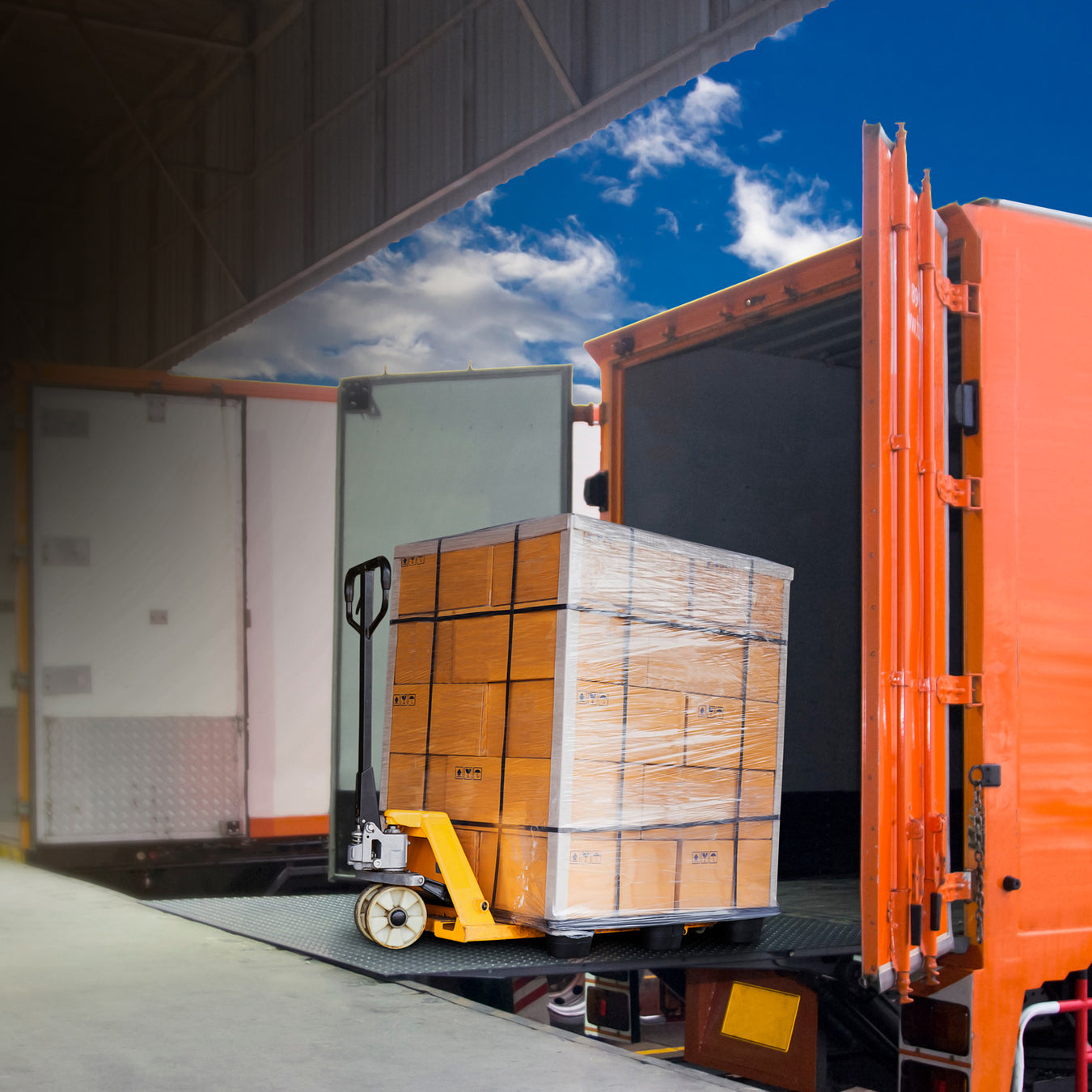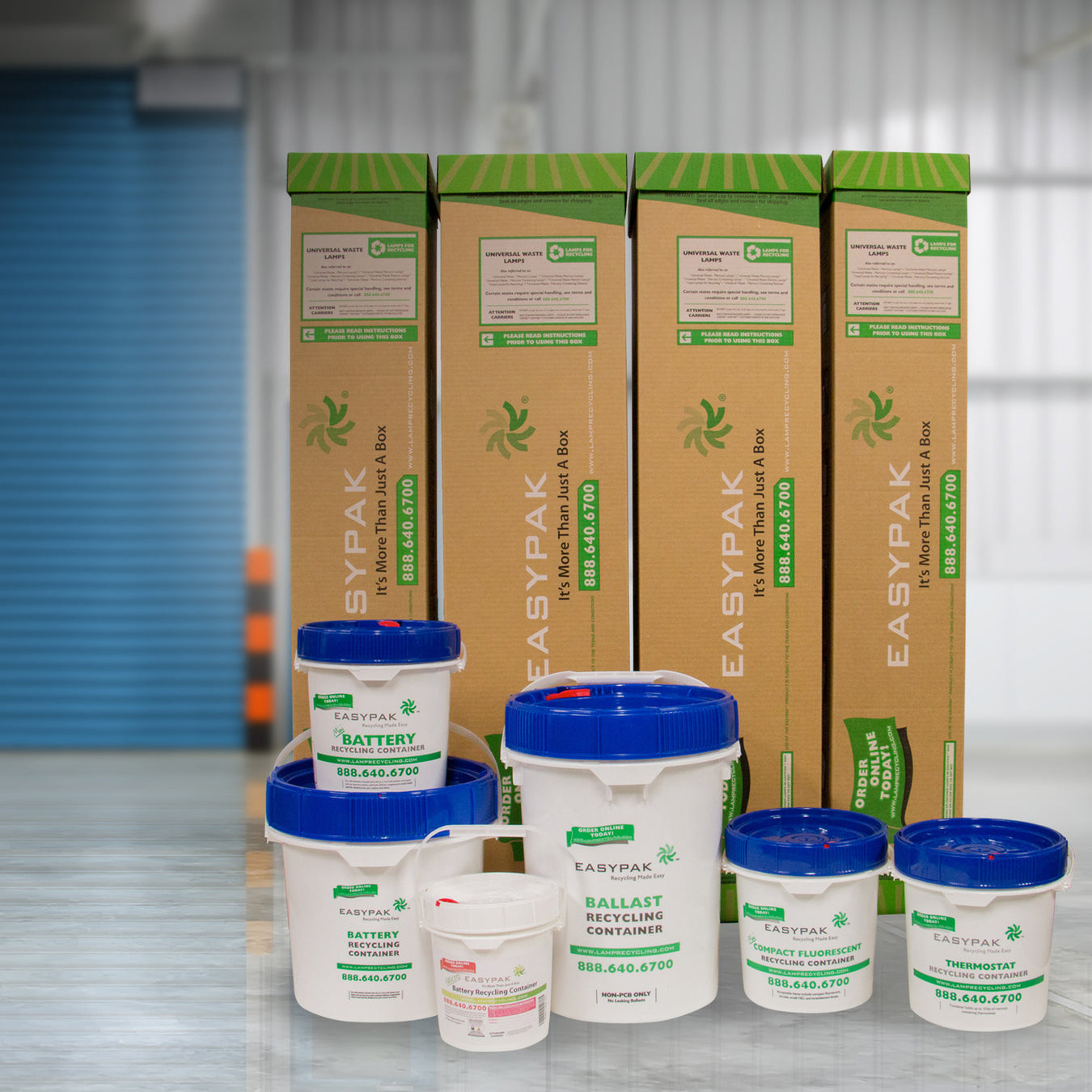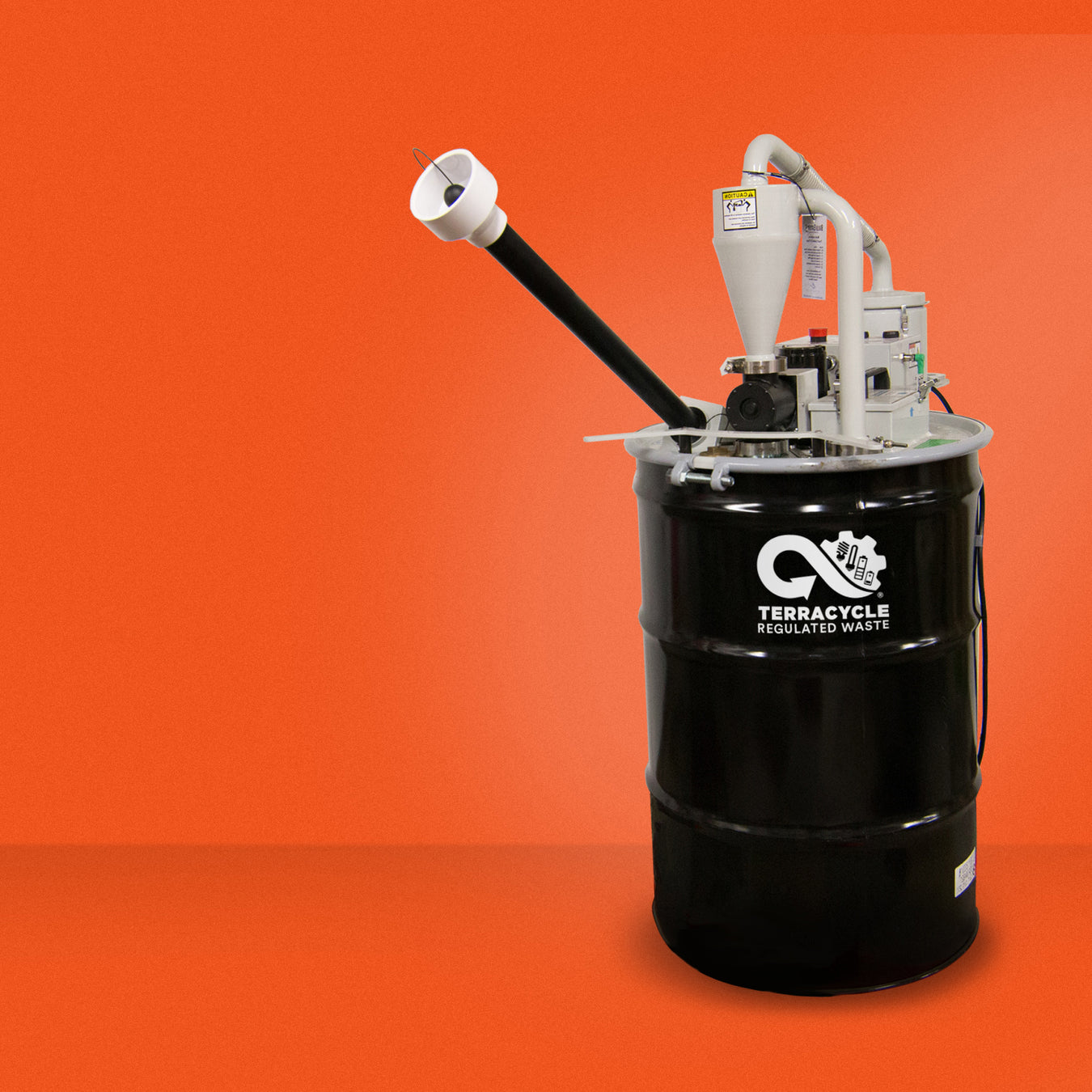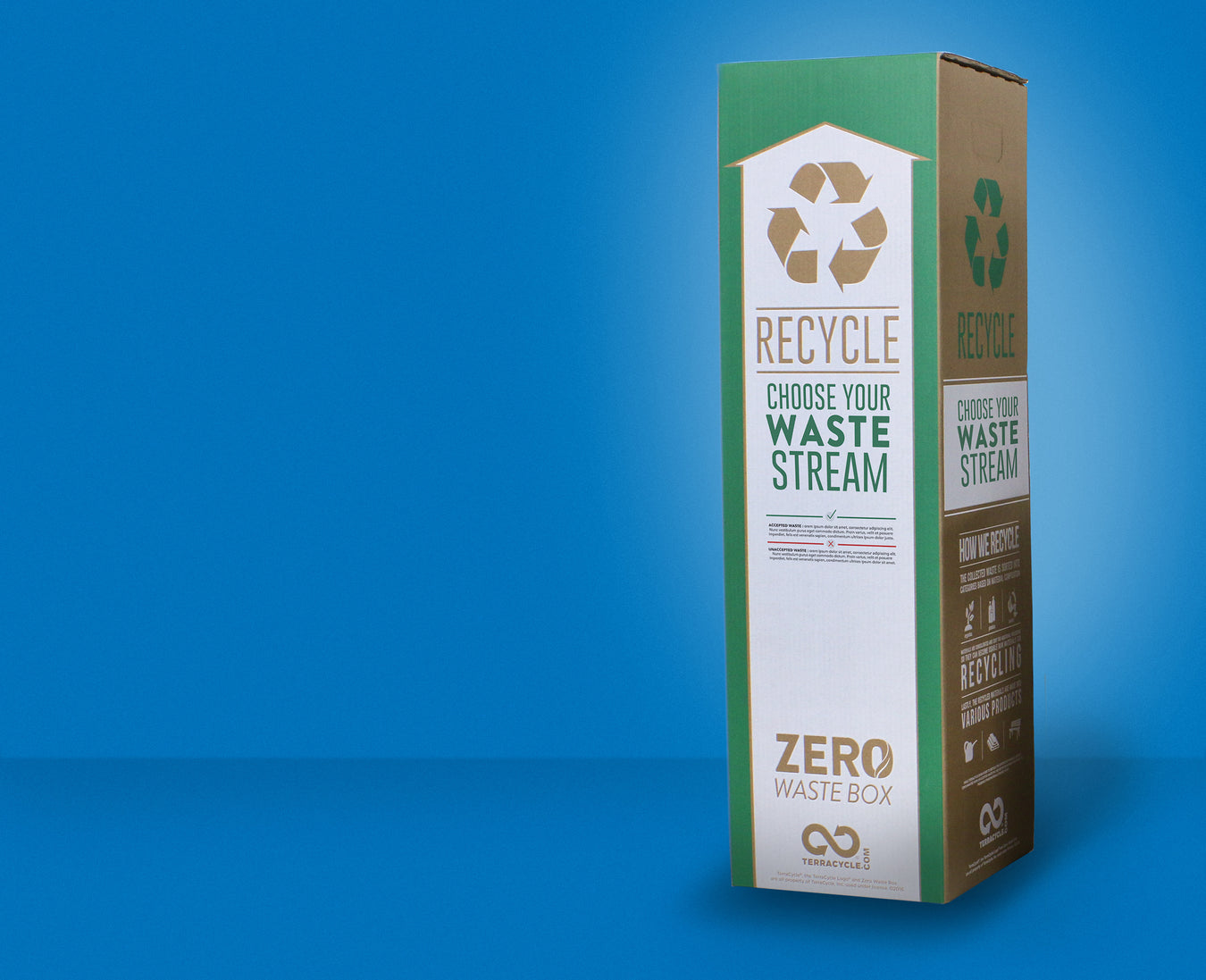Massachusetts Fluorescent Bulb Recycling Regulations
Quick Facts:
- Due to mercury concerns, recycling fluorescent bulbs is required by law by the Massachusetts Dept. of Environmental Protection
- Lamp crushing is allowed by CESQG’s in Massachusetts. A permit is required for Small and Large Quantity Generators
- Prepaid bulb recycling by mail is allowed in Massachusetts
Recycling Options Available in Massachusetts:
EASYPAK RECYCLING CONTAINERS
Fill up containers with bulbs, ballasts, batteries, or e-waste at your own pace and mail back via prepaid shipping
BULK RECYCLING PICKUPS
For larger amounts of bulbs, ballasts, batteries, or e-waste. Trucks come pick up waste at your location for recycling
Questions about recycling in your state? Contact us for more information.
Detailed Massachusetts Fluorescent Bulb Recycling Regulations
The stringency chart below provides examples of state regulations compared to the EPA regulations.
We strongly recommend that you discuss stringency with your primary state regulatory contact. This information should not be interpreted as definitive legal guidance. This document was produced in June 2004, and we do not guarantee its accuracy after that date, as state policies may change at any time.
("same" means the state policy is the same as the federal policy)
Confused about terminology (CESQG, UW, TCLP, etc.)? Refer to this glossary for help.
| Jurisdiction | Generator Exemption (CESQG) |
Where can waste from CESQG go? | Can the waste be declared non- hazardous, based on TCLP? | Other stringency or exemptions? |
| Federal EPA | Generators producing less than 100 kg (220 pounds) of hazardous waste (HW) or 1 kg acute HW in each month, including all HW generated. CESQGs are exempt from federal rules, but not exempt from liability (40 CFR 261.5) | Waste may go to any Municipal Solid Waste Landfill (MSWLF) | Wastes that test less than 0.2mg/l soluble mercury are not considered hazardous under federal rules. | Crushing can only be done by generator (40 CFR 262.34); crushed waste that is not UW- must be managed as RCRA HW. Crushing not allowed within federal UWR, but may be within State UW regulations. No one may crush third-party lamps without treatment authorization [1]. No mobile treatment units. |
| Massachusetts | Requires CESQG's to register as "Very Small Quantity Generators" (form available here) | Waste must go to RCRA Sub-C facility or state equivalent, or another generator | same | Crushing allowed for CESQGs, small and large quantity generators require permit |
State Regulatory Contacts
| Primary Contact | Title | Agency Address | Phone | |
| Lori Segall | Mercury Program Manager |
Department of Environmental Protection 1 Winter St. Boston, MA 02108 |
(617) 654-6595 | Lori.Segall@state.ma.us |
| Secondary Contact | Title | Phone | Area of Responsibility | |
| Judy Shope | Recycling Policy Coordinator | (617) 292-5597 | Mercury policy and programs, Bureau of Waste Prevention | |
| Tina Klein | Household Hazardous Waste Program Manager | (617) 292-5704 | Waste combustion companies, mercury reduction plans | |
| Ruth Dinerman | Director of Communications | (413) 445-4556 | Will do outreach with LROP materials in western MA with local governments | |
| Main Number | (617) 292-5500 | |||
| Regulations | (617) 626-1000 | Regulatory | ||
Fluorescent Lamp Management Facts for Massachusetts Businesses and Institutions
Massachusetts Department of Envionmental Protection

Using fluorescent lamps makes business and environmental sense because they consume one quarter as much electricity as incandescent lighting. At the same time, spent and broken fluorescent lamps need to be handled very carefully because they contain small amounts of mercury. Standard linear fluorescents, lamps with green end caps or green marking, compact fluorescents, high intensity discharge (HID), neon and high-pressure sodium lamps used in outdoor lighting all contain mercury.
The Mercury Management Act, enacted in 2006, prohibits all items that contain mercury, including low mercury fluorescent lamps, from being thrown in the trash effective May 1, 2008. As of this date, all mercury containing lamps must be recycled or managed as hazardous waste.
Why is mercury a problem?
Mercury is toxic to the human nervous system, kidneys, liver and immune system. When inhaled or ingested, it can cause a range of physical symptoms. Mercury that is released to the environment “bioaccumulates” in fish – that is, it builds up in their tissue over time – making them less healthful or even dangerous to eat. The Massachusetts Department of Public Health (DPH) has advised pregnant women, nursing mothers, women of child bearing age and children under 12 to avoid eating most freshwater fish from Massachusetts lakes, rivers and streams. DPH has also recommended that all Massachusetts residents avoid certain fish from those bodies of water where sampling has revealed a significant mercury problem.
When fluorescent lamps are broken, burned in a waste-to-energy plant, or buried in a landfill, mercury can be released into air. While air pollution equipment at waste-toenergy plants can capture over 90 percent of the mercury released at these facilities, the remainder is released into air, as is most of the mercury released by landfills and by bulbs that are broken in uncontrolled settings.
What are the risks of mercury exposure from handling lamps?
Mercury lamps only pose a hazard when they break. When they are handled properly to minimize breakage, there is little chance of mercury exposure. In fact, an active lamp recycling program can reduce the likelihood of an accidental mercury release by stressing the importance of handling lamps carefully.
Are there specific rules for handling spent and broken lamps?
To minimize the potential for mercury releases from broken fluorescent lamps, the Massachusetts Department of Environmental Protection (MassDEP) requires that all lamps be accumulated, stored, transported and disposed of as hazardous wastes, under the Massachusetts Hazardous Waste Management Act and the federal Resource Conservation and Recovery Act (RCRA).
Fluorescent lamps may be recycled under the streamlined provisions of the Universal Waste Rule (found at 310 CMR 30.1000), which MassDEP adopted to encourage the recycling of products with specific toxic or hazardous constituents. To recycle fluorescent lamps, you must:
• Store unbroken lamps in a box or fiber drum to prevent breakage, and keep that container in a secure, protected area. If possible the storage container should be closed between uses and stored in a ventilated area that is not consistently occupied, in case the lamps break during storage.
• Label the container Universal Waste – Spent Fluorescent Lamps and mark it with the date on which you first began storing the lamps. Fact Sheet: Fluorescent Lamp Management for Businesses & Institutions
• Have these lamps collected by, or delivered to, an authorized lamp recycler, hazardous waste transporter or another universal waste handler within one year of the date marked on the container. If you have broken bulbs, follow the guidance in the next section of this fact sheet.
What do I do if a lamp breaks?
Never use a vacuum cleaner, which will only disperse the mercury over a wider area. If a lamp breaks in the universal waste storage container, do not empty the container; rather, have the container collected by or delivered to an authorized waste handler as soon as possible. If a lamp breaks outside of the universal waste container, see specific cleanup guidance at: https://www.mass.gov/dep/toxics/stypes/hgres.htm#dispose
More Resources
| Web Links and Informational Resources | |
| Fluorescent Lamp Management for Businesses and Institutions | https://www.mass.gov/dep/toxics/stypes/flampbiz.htm |
| Department of Environmental Protection Home Page | http://www.state.ma.us/dep/dephome.htm |
| Mercury Management Act | https://www.mass.gov/legis/laws/seslaw06/sl060190.htm |
| Generator Registration Form | https://www.mass.gov/dep/recycle/approvals/genreg.pdf |
[1] Crushing lamps intentionally is considered treatment of a hazardous waste. Regulations allow generators, in some cases, to treat their own waste without having to get permits or authorization from their states. No one, however, is allowed to treat someone else's hazardous waste without specific authorization and/or permitting from the state. Commercial lamp recyclers treat lamps during the recycling process and are usually considered Destination Facilities subject to permitting.






